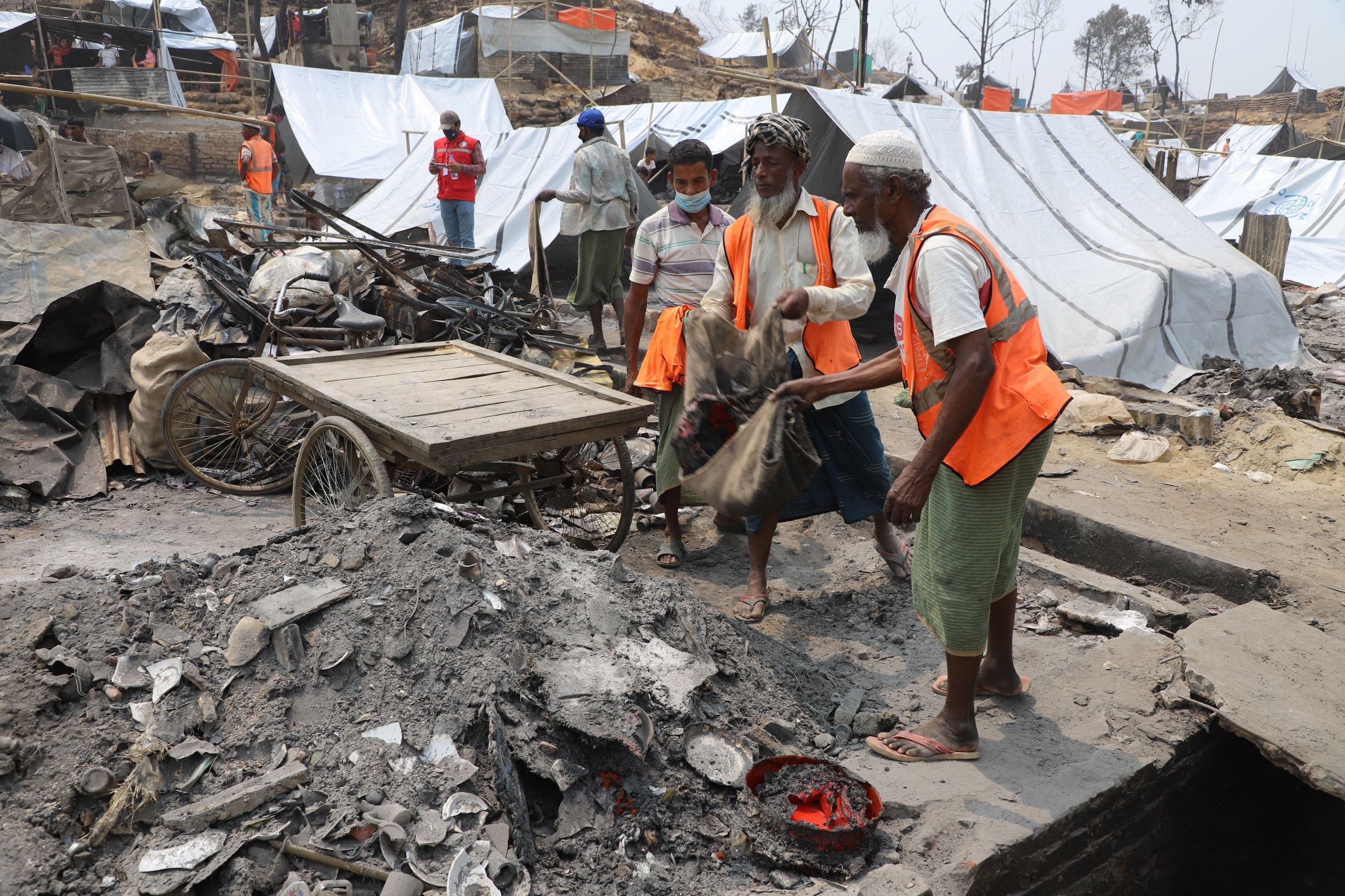Oxfam assisting survivors with clean water, soap, emergency latrines
A massive fire that swept through the refugee camps of Cox’s Bazar, Bangladesh, on March 22 has left 10,000 families—roughly 45,000 people—displaced and in urgent need of food, water, and sanitation services. The fire was yet another devastating blow to the Rohingya people who fled shocking violence and persecution in Myanmar.
The fire started at 4pm and spread rapidly for several hours in the densely populated camps, destroying thousands of bamboo and tarpaulin shelters, until government fire and rescue services managed to control the blaze. The damage is extensive and still being assessed, but early reports suggest that 15 people were killed, and at least 560 people were injured, while hundreds remain missing.

“The worst affected areas have been reduced to ash—the only things left standing are shelter foundations and bits of household metal like pots and sewing machines. The level of destruction is unlike anything our team has seen before,” said Enamul Hoque, who leads Oxfam’s Rapid Response Team.
“We are deeply concerned for the safety and wellbeing of the 10,000 families displaced by the fire,” Hoque said. “The blaze has destroyed critical infrastructure, including water stands and sanitation facilities. Refugee families are in urgent need of food, drinking water, and safe toilet facilities.”
Oxfam’s Rohingya volunteers were the first responders, followed by Oxfam’s Rapid Response Team, which deployed immediately with water trucks—on standby for such emergencies—and rushed to the camps to help extinguish the blaze. The team also transported water in jerry cans to refugees in areas that the water trucks could not reach. Barbed wire fencing around the camps impeded both refugees’ ability to escape and the Oxfam response team’s ability to provide aid in time and at scale.

“The Rapid Response team worked through the night, setting up water tankers and installing tap stands to distribute emergency drinking water. The team also provided displaced refugees with hygiene kits and emergency latrines,” Hoque said.
In the coming weeks, Oxfam will also work with partners to distribute food and household essentials like solar lights. Oxfam has helped about 22,750 fire survivors so far with clean water, jerry cans, and desludging of latrines. Oxfam staff estimate they are helping about 60 percent of the people affected by the fires.
The Cox’s Bazar camps are severely crowded with roughly 40,000 people per square kilometer (less than half a square mile). The 10,000 families displaced by the fire are now taking temporary refuge in other camps which are already densely populated, further heightening the risk of an outbreak of COVID-19.
In the wake of the fire, many families have been separated. A top priority in the coming days will be reuniting families and monitoring the safety conditions for those who have been displaced. As we know from past experience, women and girls bear the brunt of this type of crisis—often placing themselves at risk to find means to survive. Oxfam will continue to assess their needs and identify immediate solutions together with other humanitarian groups.



